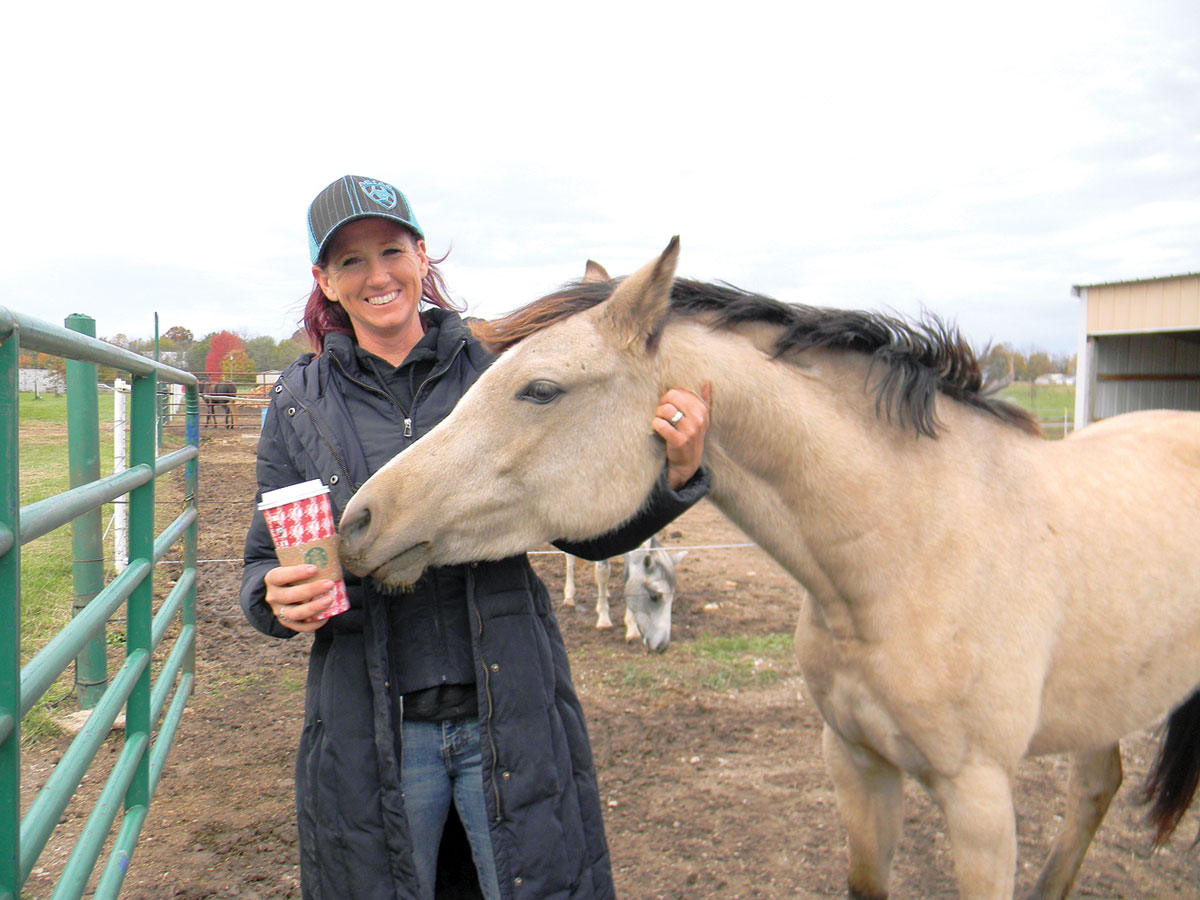
Rowdy Mountain Farm owners Gerrit and Karen Voshel keep only the best for their breeding program
Almost a decade after moving from Colorado to rural Dallas County, outside Long Lane, Mo., Gerrit and Karen Voshel find themselves surrounded by Katahdin sheep on their Rowdy Mountain Farm.
A retired Marine and a retired elementary school teacher, the Voshels have become well versed in their new chosen field, which includes tracking birth weights, rates of twins and triplets, and 30- to 90-day growth weights, amongst other traits, all on the computer.
“We only keep the best for breeding,” Gerrit explained inside a sheep barn full of Katahdin ewes. “We started out looking for and breeding to specific traits like size, then bulk, a little more height, a little more weight. We evaluate every year, looking to see which ram, when matched with a particular ewe, will help to correct any deficits.”
The Voshels have found ways to overcome some of the most common problems that plague sheep and goat breeders in the Ozarks.
“We keep about 60 breedable ewes and only breed once a year. Then we have a couple hundred on the place for a while,” he grinned. “Of course, many people do breed more than that, but we’ve found this makes for stronger ewes.
“We’ve sold every ram we’ve had here and no one’s ever called to complain they were unhappy, except for one commercial breeder. He came in and looked over what we had and asked about a specific ram. I told him that one was not for sale and he said, ‘of course, it is’ and got out his checkbook. He took the ram with him and then called back sometime later to complain that with his ewes that ram kept producing triplets and had even given him one set of quads. He said he just couldn’t keep up with that so he brought that ram back and we found him a couple of others,” Gerrit ended with a laugh. “Our ewes usually produce twins and triplets. We rarely see a single birth around here.”
The Voschels track the timing of the breeding of their ewes carefully so they can have those about to lamb in the sheep barn when it is time to deliver.
“Of course, a commercial breeder couldn’t do it that way,” Gerrit said. “To tell the truth, I wanted a few sheep to train my Border collies when we started all of this years ago, but Karen’s the one who made it into a real business. Folks around here call her the ‘Sheep Goddess; and lots of them call to ask for her advice with this or that problem.”
The Voshels who were once actively involved in the business of raising Border collies as herd dog as well as Brittany Spaniels, which are bird dogs.
“We started out showing Border Collies and Brittanys in AKC conformation shows, and then we got hooked on herding trials as a hobby.”
They still make use of canines in herding and guarding their sheep. Gerrit prefers the Anatolian-Great Pyrenees cross bred dogs in terms of guard dogs. He also makes a home for a number of their “retired” border collies who are too old to work but still part of the family.
“Coyotes and domestic dogs are a real danger to sheep herders in this area,” Gerrit shared. “I had one lady to tell me she was going to get rid of her dogs because all they did was sleep all day. I explained to her, ‘Ma’am, those dogs work all night long, guarding the flocks against coyotes and even packs of dogs that run in the area. Of course, they sleep around the barn in the daytime when we are around and can take care of the sheep. They have to sleep sometime but believe me, they work hard all night and I’ve never lost a sheep yet to a coyote or a dog.’”
In addition to controlling predators, biosecurity measures taken by the Vogals also keeps out unwanted problems.
“We also work on biosecurity, to keep down the disease problem, like foot rot,” Gerrit said.
Visitors to the Rowdy Mountain Farm are presented with a pair of disposable plastic foot coverings, reminiscent of what a doctor might wear in the operating room. While such measures assure that diseases are not inadvertently carried in via manure off another’s boots, they also provide the visitor with a clean pair of boots with no mud and manure as they leave.
The results of their efforts are obvious to the eye as the Voshels’ Katahdins are large, healthy and eye appealing.
“We work on breeding pretty ewes that are also parasite resistant,” Gerret continued. “Those that don’t meet our standards, we cull out pretty quick and they go to market.”
The Voshels have greatly enjoyed and benefitted from attending the Midwest Ram Sale, held in Sedalia, Mo., each year in June. Unfortunately, the 2020 sale was cancelled this year due to concerns with Covid 19.
“It attracts people from all over the country and all breeds are represented there, not just Katahdins,” Karen added. “It’s a great place to meet others, visit and share information. It’s an especially good opportunity for people who are just getting started in this business. We certainly hope it will return in 2021. We look forward to it.”







